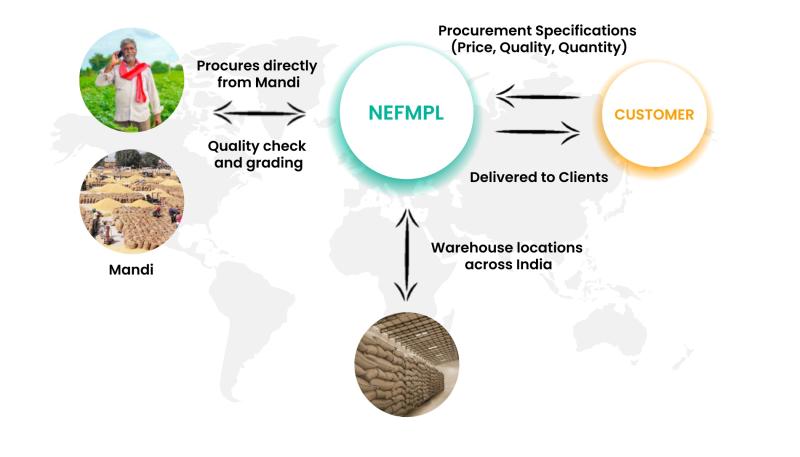Ensuring Effective Food Grain Quality Monitoring in India

Food grain quality monitoring is an essential aspect of agricultural management, especially in a country like India where a large portion of the economy and livelihood depends on farming. Ensuring the quality of food grains not only safeguards the health of consumers but also promotes fair trade and maximizes value for farmers and traders alike.
The Importance of Food Grain Quality Monitoring
Food grains are one of the most consumed agricultural products in India, making the need for quality monitoring even more critical. When quality is overlooked, it can lead to economic losses and public health issues. Various factors, such as moisture levels, contamination, and improper storage, can degrade the quality of grains. Effective monitoring ensures that these issues are identified and controlled early on.
Moreover, with India's growing population, the demand for high-quality food grains continues to rise. Therefore, ensuring that grains meet the necessary quality standards is essential for both domestic consumption and export markets. Consistently monitoring quality helps increase the shelf life of grains, reduces wastage, and ensures that consumers receive the best possible products.
Food Grain Quality Monitoring Techniques
There are several methods employed to assess the quality of food grains, including visual inspection, lab tests, and digital monitoring systems. Traditionally, quality assessment was done manually, involving visual checks for discoloration, insect damage, and grain size. However, modern technology now enables faster and more accurate quality assessments through scientific techniques like moisture content measurement and chemical analysis to detect pesticide residues or other contaminants.
In recent years, digital systems and AI-based technologies have started playing a role in food grain quality monitoring. Automated systems can now quickly analyze large quantities of grains, ensuring better accuracy in detecting quality issues. This reduces human error and speeds up the entire process, making it more efficient.
Challenges in Monitoring Grain Quality in India
Despite technological advancements, there are several challenges when it comes to ensuring food grain quality in India. One major issue is the sheer volume of grain production. India is one of the largest producers of food grains in the world, and monitoring such vast quantities can be complex.
The lack of suitable storage facilities is another issue. Without adequate infrastructure, grains are often stored in unfavorable conditions, leading to spoilage, pest infestation, or contamination. In addition, rural areas often lack the resources to implement advanced quality monitoring systems, which can result in quality degradation during transportation or storage.
Sohanlal Commodities - Leading the Way in Agricultural Management
Sohanlal Commodities Management understands the critical need for food grain quality monitoring in India. As a leader in agricultural commodities management, Sohanlal ensures that quality monitoring is integrated into every stage of their operations, from warehouse management to grain handling and storage.
Through efficient warehouse management systems, Sohanlal maintains the ideal storage conditions for grains, ensuring that quality is preserved for longer periods. By employing advanced monitoring techniques, they help farmers and traders protect their grains against common issues like moisture buildup, contamination, and pest infestation. Sohanlal also assists farmers by providing access to loans, ensuring they can invest in better equipment and technology to maintain high-quality standards.
By combining state-of-the-art monitoring systems with a deep understanding of India’s agricultural landscape, Sohanlal Commodities Management is helping farmers and businesses thrive while promoting food security and quality across the country.

Comments